I couldn’t think of a better guest to kick this thing off. Tim is not only one of my closest friends, but also is the one who most persistently encouraged me to launch a podcast.
Want more content like this? Check out our interviews with Kristin Neff on the power of self-compassion and Esther Perel on the effects of trauma.
Subscribe on: APPLE PODCASTS | RSS | GOOGLE | OVERCAST | STITCHER
In this episode, Tim talks both experientially and from his own deep dive into the literature of psychedelics and mental health. Tim is shifting his focus from investing in startups to funding experiments that he hopes will establish more reliable knowledge and therapeutic options for those suffering from anxiety, depression, and addiction.
If this topic even remotely interests you, I can’t recommend Tim’s podcast with Michael Pollan, author of How to Change Your Mind, enough. (You should definitely read Pollan’s book as well.) Even if you’ve never had any exposure to psychedelics or their potential applications, I think you’ll find this subject matter really interesting, and I was very grateful for Tim to be so open and honest about his experiences.
Tim also shared his short list of acquired wisdom he returns to most reliably, which might be worth the price of admission alone.
We discuss:
- Tim’s history of depression and his TED Talk on his close call with suicide;
- The type of thinking that triggers Tim’s downward spirals;
- Tim’s transformative experience with ayahuasca;
- How Tim’s experience and research has led him to focus on furthering the science of psychedelics and mental health;
- What some of the meditation modalities, and meditation apps, are out there, why can meditation be so hard to do, but also worthwhile to stick with;
- Why Tim made a big commitment (more than $1 million) to funding scientific research, and to psilocybin and MDMA research, in particular;
- From all the habits and tools that Tim has learned, the five things that he returns to most reliably; and
- More.
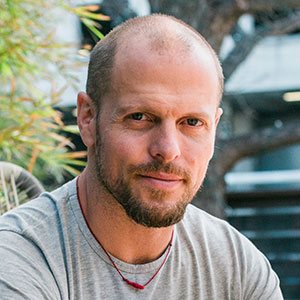
Tim Ferriss
Tim Ferriss has been listed as one of Fast Company‘s “Most Innovative Business People” and one of Fortune‘s “40 under 40.” He is an early-stage technology investor/advisor (Uber, Facebook, Shopify, Duolingo, Alibaba, and 50+ others) and the author of five #1 New York Times and Wall Street Journal bestsellers, including The 4-Hour Workweek and Tools of Titans: The Tactics, Routines, and Habits of Billionaires, Icons, and World-Class Performers. The Observer and other media have called Tim “the Oprah of audio” due to the influence of The Tim Ferriss Show podcast, which is the first business/interview podcast to exceed 200 million downloads.
Tim on Facebook: Tim Ferriss
Tim on Instagram: @timferriss
Tim on Twitter: @tferriss
Tim’s website: tim.blog
Tim’s podcast: tim.blog/podcast


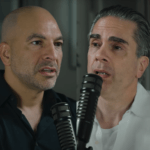
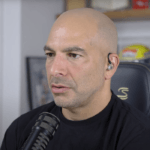
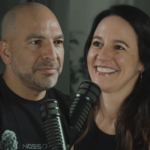
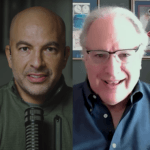
Lovely podcast … tons of reminders and much new stuff to ponder on … Thanks Peter and Tim
Optimal Minimal!! Peter very grateful for you starting this podcast
Does anyone have any references or suggested reading for 7 day fasting for ketosis? Benefits? I know there is a ton of reading out there for fasting and for a ketogenic diet. However, it seemed to be suggested that Tim fasts quarterly for 7 days to attain a period of Ketosis. I’m fairly active (run, cycle, swim, weight train, rock climb etc…) and have a low body fat %. So not looking for the benefits of fat burn necessarily, just find the subject interesting and would like more info. Any info would be great! Great Podcast! Keep them coming!
Hello Andrew.
To be honest, the fast with the highest use I’ve seen is the 3 day fast. All the others might be too extreme and even Tim usually mentions that a keto diet alone should be taken seriously, otherwise you’re doing more harm than good.
A 3 day fast or a fasting mimicking diet should yield similar results, in case someone wants an easier way to get those benefits. However, if you’re in ketosis before having the 3 days fast, it shouldn’t much of an effort and the 3 days fast is in my opinion the safer bet than something discovered so recently as the FMD, but hey, worth a try.
~Felix
I am so glad that you started your own podcast.
Hello Peter.
Great to see your own podcast. It was definitely a good first episode. Strangely Tim seems to have some good persuading powers to be the first guest, since it happened with Rolf Potts and Cal Fusman as well if I’m not mistaken.
But anyhow, although not my favorite subject, it seems psychedelics deserve more attention and I have to say that the last part was very important to add, since those 3-5 things, that obviously became 5, are really as important as their honorable mention in the top spots.
One technical question I have is about the show notes. This one in particular doesn’t seem to be right, if I am not somehow missing something:
What advice would Tim give to his 20- or 30-year-old self? [2:36:00]
Looking forward to other episodes.
~Felix
Hello Peter – thank you so much for making your abundant resources so freely available. I especially appreciate your candor and willingness to be so deeply personal about these issues. I have picked up the Terrence Real book at your recommendation. Wow. It’s given me so much more understanding about the men in my life. You are a wonderful teacher – presenting vital information while challenging the listener/reader to go deeper. Your being and work have certainly improved the quality of my life.
Carhart-Harris. Take a look at the selected links / related material and you’ll find some papers from him and his group.
Just listened to the first episode.
Fantastic job, Peter!!!
Keep them coming.
Hi Peter! Your episodes on the Tim Ferriss show are the ones I’ve repeated the most. SO HAPPY that you finally started this. I have a mental health counseling degree and I’ve experienced some of what you and Tim attempted to describe as experiences with psychedelics, through Vipassana meditation. After my first Viapassana experience I began to think that this would be way more effective than the psychotherapy I was trained to do. It completely changed the way I saw psychotherapy.
I have so much I want to say and ask you and Tim but I’ll only ask one question: Do you or Tim know of any research into treatment “pathways” or how to move people from one treatment to the next? I’m very interested in how we’ll visualize psychedelics in the future as a part of overall treatment strategies but right I’m interested in how to help people navigate what we already have. Perhaps you have some insights on this within the medical field? I don’t mean just moving people through a system, I mean visualizing all treatment options, placing people on the map based on different variables, and then helping them move through that map. I don’t think current models account for all possibilities and I think artificial intelligence is the only way to really help people navigate all their options. This is my current professional/research obsession and would love to hear any insights you have on this.
Have you read any Chogyam Trungpa, Peter?
What Tim calls ‘open monitoring’ is called Shamatha
I like Sam’s stuff too but sometimes feel he gears it too towards the individual approach. Maybe that just helps with the whole marketing to individuals thing, but sometimes seems like he misses the bodhicitta aspects of things, or the drive to benefit others without any gaining ideas or aspirations for the self.
Anyways, the idea that everything is a stage- check out Trungpa’s writings on mahamudra. Everything is malleable.
Thich Nhat Hanh has great writing – taming the tiger within, transformation and healing, no mud no lotus, reconciliation: healing the child within, being peace, the miracle of mindfulness- all fantastic.
Trungpa – he has the dharma ocean series which goes pretty much end to end and is very comprehensive. Training the mind and cultivating loving kindness is fantastic. The sanity we are born with is also great. Cutting through spiritual Materialism and meditation in action are both classics as well. Highly recommend, for what it’s worth.
Really enjoyed the podcast, looking forward to listening to other episodes. Cheers
What a fantastic episode. Although I have tried psychedelics, I have done mindfulness meditation for 3 years and have definitely experienced a ‘re-set’ on the way i view my thoughts, emotions, others and the world. It truly did change my life or the better. The frustrating part is trying to describe to others the impact and just how easy it actually is with dedication and a willingness to integrate into the ‘real world’. If life was a game of the mind, then meditation is the training. You don’t win games unless you train.
One thing I would like to offer my insights to being an ex clubber. I have taken MDMA many hundreds of times in my life, albeit some years ago now, in my late teens, early twenties. When i think back to my social awkwardness and a distinct lack of many friends before these days, I am still very grateful for discovering clubbing because regardless of the setting, MDMA brings down social barriers. I formed my closest bonds with people not in the club, but after when we were free to talk with zero judgement and pure acceptance about things that from the outside were quite deep and not typical everyday conversation.
These experiences definitely changed the way I communicated and thought about others. Many of my current friends are from that era 20 years ago!
I would also like to say that I probably became over emotional during that period and can’t deny that ‘come downs’ can also be impactful in a negative way.
After watching ‘trip of compassion’ I can definitely see that in a different setting, MDMA is incredibly powerful in a good way.
Based on my experience, I can say that only an understanding of the cause of their occurrence helped me overcome anxiety and depression. I learned this knowledge from a film https://allatra.tv/en/video/game-of-professionals-what-is-consciousness-film-1 in which an international group of psychologists in the form of a game revealed information about what consciousness is, who such a person is, where thoughts come from and how to overcome obsessions in oneself. The site also contains information about the PYRAMID experiment, which generally reveals the purpose of the pyramids and how they affect people.
Hi Peter,
Is there a spot in where you list out all the book recommendations mentioned in this podcast?
Absolutely awesome. As a young neuroscience researcher I am so grateful to the insights of those that have done all of the self-experimentation!